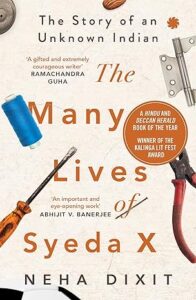Running or jogging is the simplest exercise to keep ourselves fit. It is a solitary exercise and does not require much equipment – just a “space” to run. But is that “space” easily available to female runners? The author, a hobby runner herself, shares her worries, “The shape of my sweating – does it frame my bra line too obviously? Do my breasts bounce offensively? Is my T-shirt riding too high above my butts? Is my presence provocative?”
Imagine the concerns of a female runner in the second decade of the twenty-first century living in an urban city, Delhi. Meanwhile, the author believes that sports give women a degree of equality in the public sphere. The author says the book is an “exploration of this idea. Specifically, what does sport offer women in a viciously gendered society such as India? Does it make us more equal? How equal?”
The book captures some extraordinary stories of female athletes from various social, economic, and geographical backgrounds post-independence. Additionally, it portrays the story of India itself through the lives and journeys of these remarkable female athletes.
Mary D’Suza was the first to represent India in the 1952 Olympics. Kamaljeet Sandhu was the first to win a gold medal in an international event. Earlier, Illa Mitra had been selected to represent British India at the 1940 Olympics, which was unfortunately canceled due to the Second World War. Later, P.T. Usha came close to winning a medal, missing it by a whisker—a moment that left the whole nation heartbroken.
Furthermore, the author tells us about women athletes who won medals at international forums but were ultimately failed by the system and government. The stories of Santhi Soundrajan, Dutee Chand, Pinaki Pramanik are stories of success, struggles, and apathy they have faced.
We all know of P.T Usha, she was a part of our school textbooks. But there are others, like Santhi Soundrajan, a silver medal winner at the Doha Asian Games 2006. Officials failed her in ‘gender test,’ sent her back to India, and stripped her of her medal. The government abandoned and forgot her, and in 2009, someone found her working in a brick kiln.”
Another athlete, Dutee Chand, made headlines when she challenged the World Athletics Federation after it declared her ineligible for competition due to her higher testosterone levels. We know all these stories as told to us in news media and most of the time we know only half of the story. The Author takes us through the lives of these athletes, giving us a glimpse of their struggles, challenges, background stories, and their love and dedication for the sport.
Each story of the athlete is about the times they live in, the challenges of their times, the acceptance, and the support they received, and how the sport liberated them. The stories are about their grit and determination and their achievements despite any government support. India still has a long way to go in uplifting sports, but these female athletes have undoubtedly paved the way for women in athletics. They have broken many stereotypes and achieved success and fought for space for women athletes.
A well-written book, telling stories of some extraordinary women athletes of independent India. Stories about their triumphs and tribulations, hard work and heartbreaks, stories of creating and claiming the space for themselves. A well-researched book telling us the history of Indian women and the meaning of freedom.
About The Author
Sohini Chattopadhyay is a journalist and a National-award-winning film critic. Her writing has been commissioned by The New York Times, The Guardian, The Lancet Psychiatry, South China Morning Post, The Hindu, Mint, Süeddeutsche Zeitung, and leading national and international publications. Her work has been translated into German, Bengali, Tamil and Malayalam. She is a recipient of the New India Foundation fellowship.


